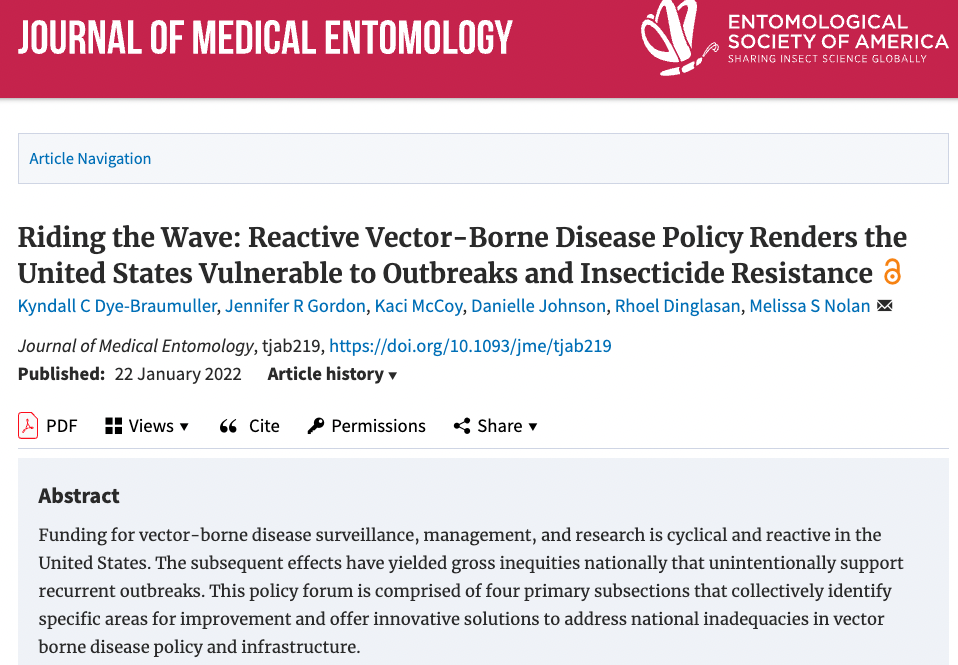|
Mosquitoes kill more people than any other animal in the world by spreading pathogens through their bites. Similarly, ticks spread pathogens that result in over 300,000 reported cases of human disease in the U.S. each year. Because of this reality, many different organizations perform surveillance, control activities, and research to protect Americans from vectors (animals that spread pathogens to other animals) and vector-borne disease (VBD; the diseases spread by vectors). Sometimes, the funding to run these organizations comes from the U.S. government. Unfortunately, according to a recent article published in the Journal of Medical Entomology, the U.S. has a history of providing funding reactively to VBD outbreaks, but once the disease becomes a regular occurrence, the funding often dries up. This reactive ebbing and flowing of money leaves the U.S. vulnerable to new, future outbreaks. To alleviate this vulnerability, the U.S. needs to provide consistent, proactive funding to support the activities required to keep all Americans safe from VBD. Preventing an outbreak requires controlling vectors and identifying cases as soon as possible, which means performing surveillance, education, and research when people are not getting sick. However, the only way to keep a watchful eye is to ensure enough money exists to support the man hours, equipment, and resources necessary to stay vigilant. The Journal of Medical Entomology publication also outlines how the lack of consistent funding unintentionally creates additional challenges that further complicate mosquito and tick control. Some of these additional challenges may include:
Despite the history of reactive funding, in recent years, the U.S. has gotten better at providing proactive support. For example, in 2017, the Centers for Disease Control and Prevention (CDC) established five Vector-Borne Disease Regional Centers of Excellence with several clear goals designed to better anticipate and protect Americans from the next VBD. Additionally, legislation passed in 2019 mandated the creation of a national strategy to combat VBD. These as well as other programs are steps in the right direction at reducing VBD and hopefully preventing the next outbreak. Regardless of the progress in recent years, policy makers in the U.S. still need to do more work to ensure sufficient funding exists to support vector control activities. Factors such as climate change, growing urban environments, and increased international travel will expand the range of vectors and potentially introduce new pathogens into the U.S. However, only through proactive funding will America be prepared to tackle the next VBD threat.
0 Comments
Leave a Reply. |
Bug Lessons BlogWelcome science communicators and bug nerds!
Interested in being a guest blogger?
Archives
November 2023
Categories
All
|
